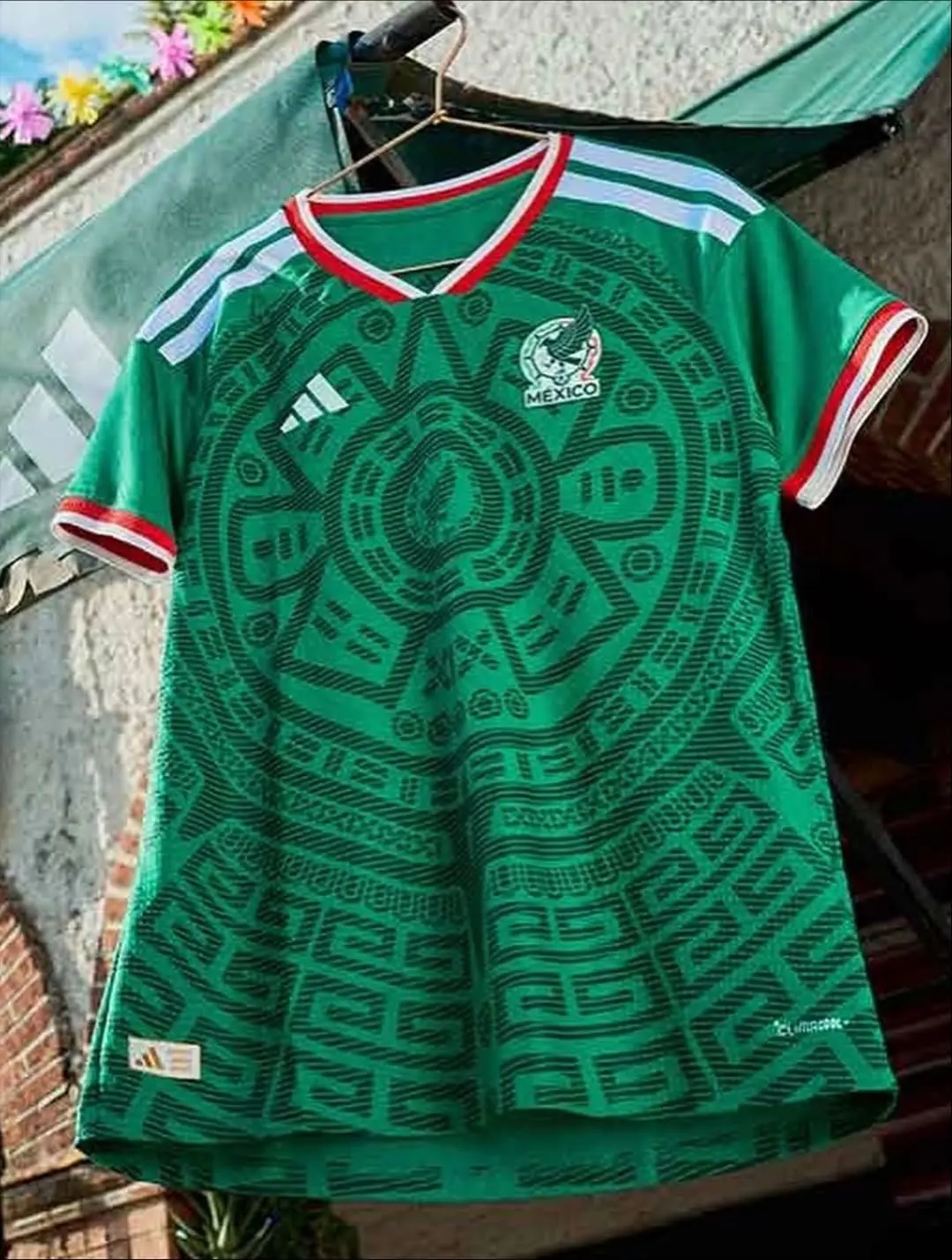In every World Cup, a team’s jersey becomes a powerful symbol of identity, carrying cultural elements that represent its nation.
On Thursday, El Tricolor revealed the new jersey it will wear as co-host of the 2026 FIFA World Cup, alongside the United States and Canada. The design pays tribute to Mexico’s pre-Hispanic heritage, featuring an intricate pattern inspired by the Aztec Sun Stone (Calendar Stone) on the traditional green base, with white stripes on the shoulders.
“The jersey is identity—during a World Cup, everyone wears it,” said Polo Monroy, a Mexico City vendor. “In 1986, we’d celebrate at the Ángel de la Independencia every time Mexico won. But now, everything’s more expensive. It’ll be a World Cup for the rich—workers won’t be able to afford those prices.”
A Symbol of National Identity
The jersey will cost 1,999 pesos in the fan version and 2,999 pesos for the player edition. Long-sleeve versions will be priced at 2,299 pesos and 3,199 pesos, respectively, according to the brand’s official site.
The design closely resembles the 1998 France World Cup kit, which also featured the Aztec Sun Stone motif. In Mexico’s previous home World Cups (1970 and 1986), the team wore green jerseys with simple white details on the collar and sleeves.
“Uniforms—whether in companies, schools, or sports—reflect a set of stylistic principles that define institutional and national identity,” explained Erick Suaste, a UNAM political and cultural semiotics expert. “The green jersey, the Aztec calendar, and red and white accents create a link to our flag and our history.”
The official unveiling was attended by national players Henry Martín, Ramón Juárez, Israel Reyes, and Marcel Ruiz, who modeled the new kit for the first time. Also present were coach Javier Aguirre, Nuevo León Governor Samuel García, and Mexican Football Federation President Mikel Arriola.
“Mexico has one of the world’s most passionate fan bases,” said Arriola. “Those who wear this jersey carry not just our flag’s colors, but our culture’s history.”
Despite strict immigration policies under former U.S. President Donald Trump, Mexican fans in the U.S. continue to fill stadiums during friendlies and continental tournaments.
“The jersey’s symbolic power is to unite people,” Suaste added. “For many migrants, it’s a way to show where they come from and reconnect with the world they grew up in.”
The Mexican National Team is expected to debut the new jersey on November 15, in a match against Uruguay in Torreón, Coahuila.
“There’s no greater motivation than representing Mexico at a World Cup,” said Reyes. “We want everyone to stand with us as we aim to take Mexico to the top.”



